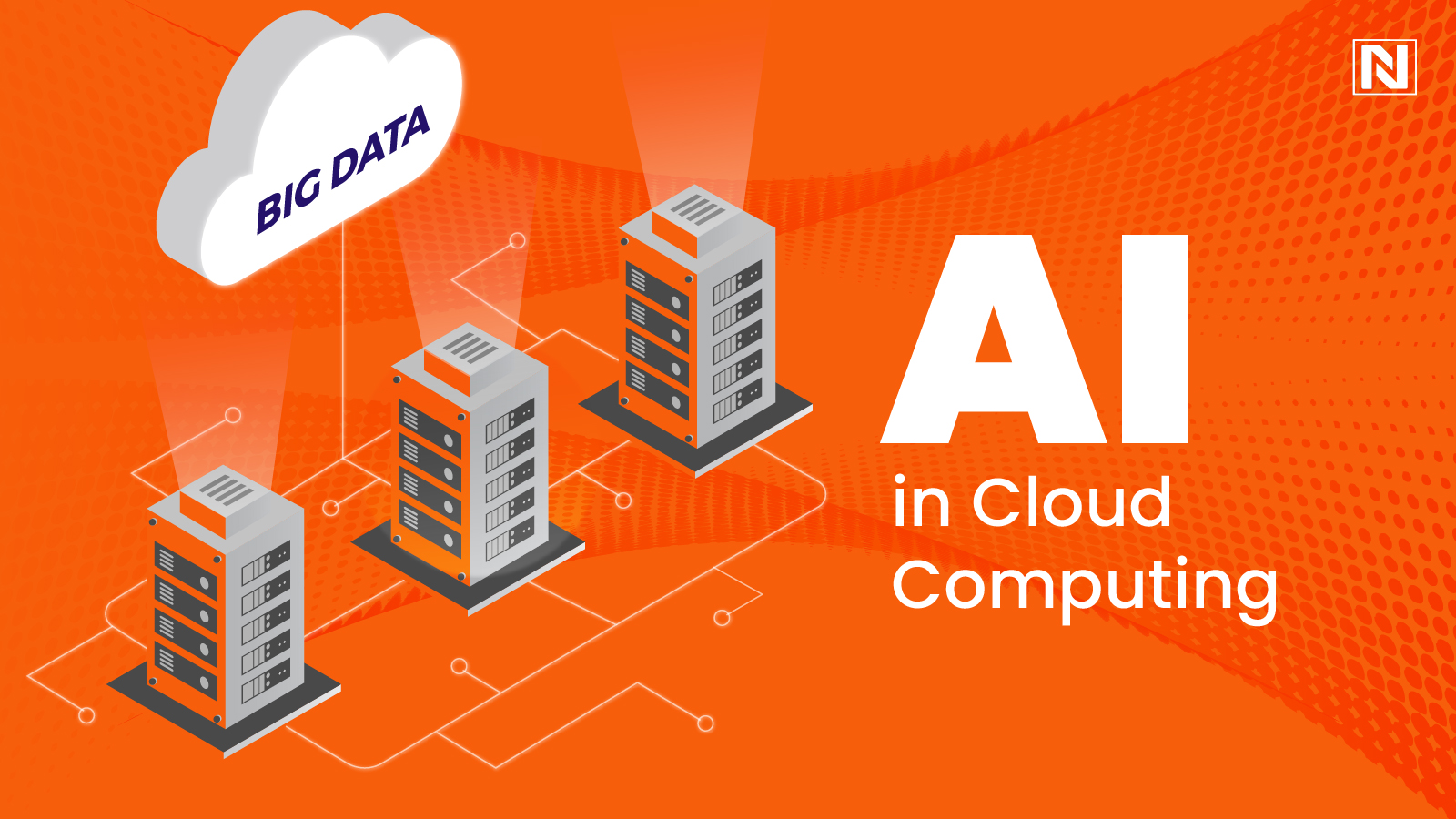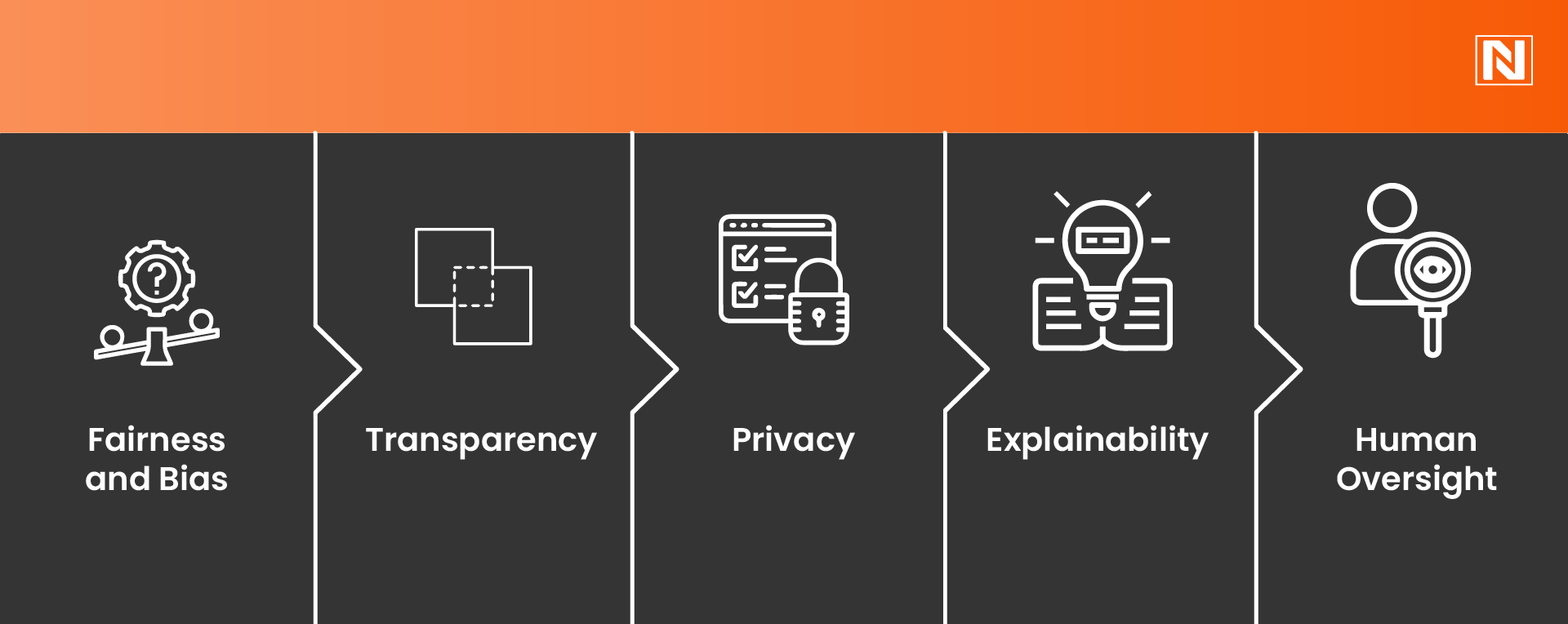
Artificial intelligence innovations are advancing at an unprecedented pace and show no signs of slowing down. Cloud computing platforms leverage these AI breakthroughs to revolutionize a broad spectrum of technology services. According to IDC, global AI spending will exceed $300 billion by 2026.
But why are businesses willing to make such significant investments?
Implementing AI in cloud infrastructure simplifies processes, boosts efficiency, and frees up IT talent to focus on development. Cloud-based AI platforms offer exactly what these sophisticated algorithms need to thrive: vast data sets, scalable computing power, and rapid innovation cycles.
In return, AI enhances cloud services with automation, performance optimization, improved security protocols, and data-driven recommendations. It’s no surprise that Gartner forecasts that by 2025, half of cloud data centers will implement advanced robots with AI/ML capabilities, driving a 30% increase in operational efficiency.
Rather than viewing AI and cloud computing as separate entities, it’s crucial to understand how AI’s growth can complement cloud technology to benefit your business.
The Equation Between AI and Cloud Computing
AI and cloud computing have seamlessly integrated in recent years, driven by their shared foundation in automation. AI takes over routine tasks, allowing your IT team to concentrate on innovative development.
However, AI requires a robust environment to thrive, and that’s where cloud computing steps in. The Cloud offers the ideal infrastructure for AI to grow, providing the computational power, data storage, and scalability that AI algorithms depend on.
A recent Deloitte survey shows that around 70% of companies are boosting their AI capabilities through cloud-based solutions. Leading cloud providers like AWS and Microsoft Azure are embracing this trend, deploying dedicated teams to build extensive AI algorithm libraries, making them more accessible for businesses to join the AI + Cloud revolution.
Benefits of Using AI in Cloud Computing
AI and cloud computing together create powerful synergies that drive innovation and improve business outcomes. Here are some key benefits of using AI in cloud computing:

1. Improved Decision-Making
AI algorithms can quickly analyze vast amounts of data, providing actionable insights that help businesses make more informed decisions. Cloud-based AI platforms enable real-time data processing, which enhances decision-making speed and accuracy.
2. Scalability and Flexibility
Cloud environments offer the ability to scale computing resources up or down as needed, and AI-powered solutions can optimize resource allocation. This helps companies manage costs efficiently while ensuring that computing power is available when required.
3. Automation of Repetitive Tasks
AI can automate routine processes such as data entry, customer support, and inventory management. When integrated with cloud computing, businesses can manage these tasks more effectively, freeing up human resources for more complex activities.
4. Enhanced Security
AI can detect anomalies, identify potential threats, and automatically respond to security breaches in real-time. Cloud providers often integrate AI-based security tools that continuously monitor networks for vulnerabilities, improving overall security posture.
5. Cost Efficiency
Businesses only pay for their computing resources by combining AI with cloud infrastructure. Cloud services with AI capabilities allow for cost savings in areas like storage, processing, and infrastructure, especially for small and medium-sized enterprises that lack the resources for on-premise systems.
Don’t Miss This Blog – How to Choose the Right Cloud Service for Your Business Needs
6. Personalized Customer Experiences
AI can analyze customer data stored in the cloud to offer personalized recommendations, improve customer support, and tailor marketing strategies. This results in enhanced customer satisfaction and loyalty.
7. Predictive Maintenance
AI in cloud computing can help monitor the performance of hardware and software, predict potential failures, and trigger maintenance tasks before issues arise. This proactive approach reduces downtime and maintenance costs.
Did You Know?
The cloud AI market was valued at USD 46.67 billion in 2022 and is expected to expand from USD 60.35 billion in 2023 to USD 397.81 billion by 2030, with a CAGR of 30.9% from 2023 to 2030.
Applications of AI in Cloud Computing
Cloud computing and Artificial Intelligence (AI) are revolutionizing our engagement with the digital world. Whether we connect on social media, access knowledge resources, assess risks in finance, shop online, enjoy entertainment, or manage healthcare, these technologies are transforming every facet of our lives. Smart home devices and assistants like Siri and Alexa have also become integral parts of our homes. The possibilities are limitless.
Public cloud services eliminate the need for developers to build and manage infrastructure for hosting AI platforms. Instead, they provide pre-configured models and frameworks that simplify the testing and deployment of AI applications. Generic AI services, which may not require machine learning models but include functionalities like speech-to-text, analytics, and data visualization, can be further enhanced by leveraging an organization’s first-party data in the cloud.
Here are some of the most popular AI cloud computing applications:
1. Cloud-Based Intelligent Chatbots – Powered by natural language processing, these chatbots efficiently understand and respond to customer inquiries, automating interactions through the cloud.
2. Personalized Recommendation Engines – Leveraging cloud technology, these systems analyze user preferences and purchasing behavior to generate customized product or content recommendations.
3. Predictive Maintenance – Cloud analytics and machine learning algorithms process IoT sensor data from industrial equipment to predict potential malfunctions, preventing downtime.
4. Fraud Detection – AI-powered cloud systems monitor online transactions and user behavior patterns to detect suspicious activities and identify potential fraud in banking and payments.
5. Optimized Inventory Management – AI-driven supply chain applications use cloud-based data to analyze inventory levels, demand forecasts, and external factors, ensuring efficient stock management and logistics.
6. Medical Image Analysis – Cloud platforms in healthcare allow rapid scanning and analysis of medical images with computer vision models, aiding in detecting various conditions and diseases.
7. Automated Customer Support – Chat and voice bots, fueled by customer data, deliver round-the-clock automated support, resolving common technical issues without human intervention.
8. Sentiment Analysis – Using natural language processing, AI tools analyze text from reviews, surveys, and social media to gauge customer sentiment and uncover valuable insights.
9. GPU-Driven Cybersecurity – Cloud-based AI systems harness GPU power to detect malware, prevent unauthorized access, and mitigate cybersecurity threats.
10. Large-Scale AI Model Training – Cloud ML Ops platforms enable the rapid development, testing, and continuous improvement of machine learning models at scale, supporting efficient model deployment and iteration.
5 Ethical Considerations for AI Projects
As artificial intelligence (AI) continues to advance and impact various sectors, it’s crucial to prioritize ethical considerations in its development. Here are 5 key ethical aspects to focus on for AI projects:

1. Fairness and Bias
AI models can unintentionally reinforce biases learned from their training data, leading to unfair outcomes, such as in loan approvals, hiring practices, or facial recognition. To prevent such issues, it’s essential to use diverse datasets, incorporate fairness metrics during development, and regularly audit models for biases.
2. Transparency
Many AI systems are still in their experimental phases, raising concerns about how decisions are made. Striving for explainability in AI models allows users to understand the reasoning behind outputs. This helps maintain user trust and enables them to detect potential errors or biases before they cause harm.
3. Privacy
AI’s ability to handle vast amounts of data often raises questions about user privacy. Businesses dealing with sensitive data must obtain informed consent, anonymize information where possible, and comply with data security regulations to protect user privacy.
4. Explainability
Explainability, closely related to transparency, ensures that AI systems provide understandable reasons for their decisions. This is key for accountability and fostering trust. Companies can gain customer confidence by implementing Explainable AI (XAI) techniques and offering clear, documented explanations for AI’s decisions.
5. Human Oversight
AI should not function without human supervision. Human oversight is crucial to ensure responsible AI use and intervene when necessary. Experts suggest defining clear roles for human oversight and establishing frameworks for human intervention when AI decisions involve ethical considerations.
How Nirvana Lab Can Help You with AI in Cloud Computing
At Nirvana Lab, we integrate AI into cloud computing to help businesses achieve unmatched efficiency and innovation. Our AI solutions optimize cloud resources, automate tasks, and provide predictive insights to support smarter decision-making. With expertise in AI and cloud technologies, we ensure your infrastructure is efficient, secure, and scalable, allowing your business to grow and innovate confidently. Let Nirvana Lab guide you in embracing the future of AI in cloud computing.
Frequently Asked Questions
What is AI in cloud computing?
AI in cloud computing refers to integrating artificial intelligence with cloud services to enhance automation, scalability, decision-making, and security, enabling businesses to leverage powerful data-driven insights.
What are the benefits of using AI in cloud computing?
AI in cloud computing improves decision-making scalability, automates routine tasks, enhances security, reduces costs, personalizes customer experiences, and enables predictive maintenance.
How does AI help improve cloud security?
AI detects anomalies, identifies potential threats, and responds to security breaches in real time, improving the overall security of cloud environments.
What are some applications of AI in cloud computing?
Key applications include intelligent chatbots, predictive maintenance, fraud detection, personalized recommendations, and medical image analysis.
How can businesses benefit from AI in cloud computing?
Businesses benefit from AI in cloud computing through enhanced efficiency, cost savings, better decision-making, scalability, and improved customer experiences.
